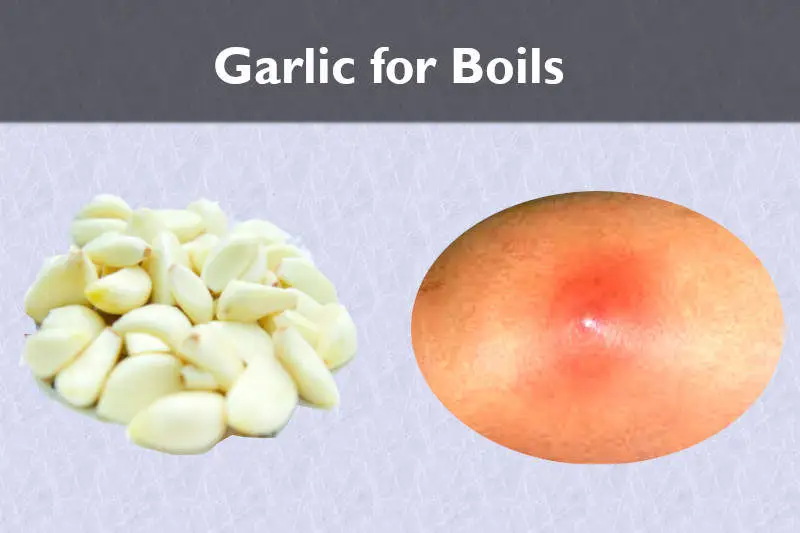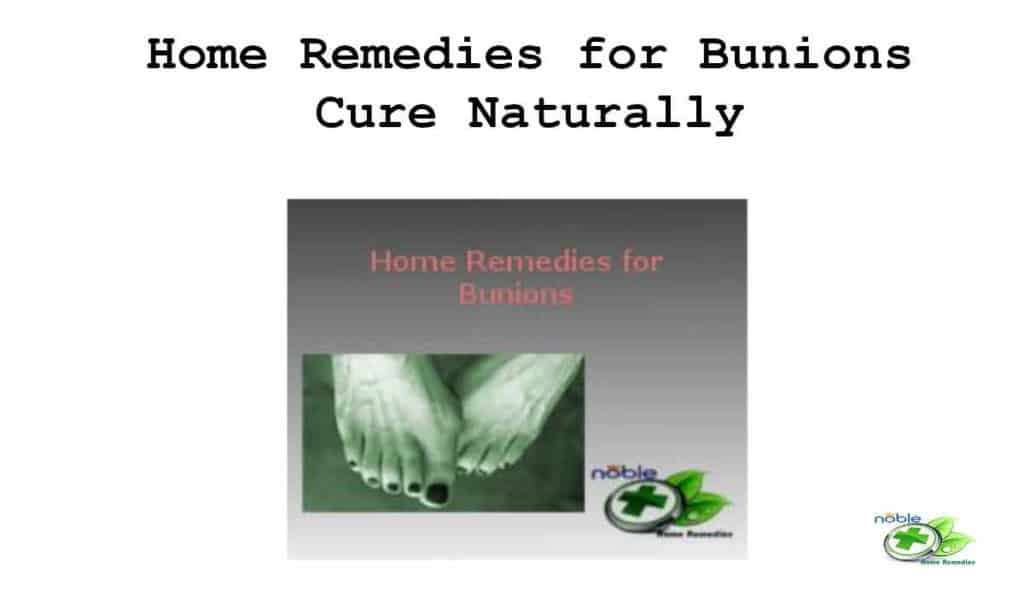Inflammation Remedies at Home: A Comprehensive Guide
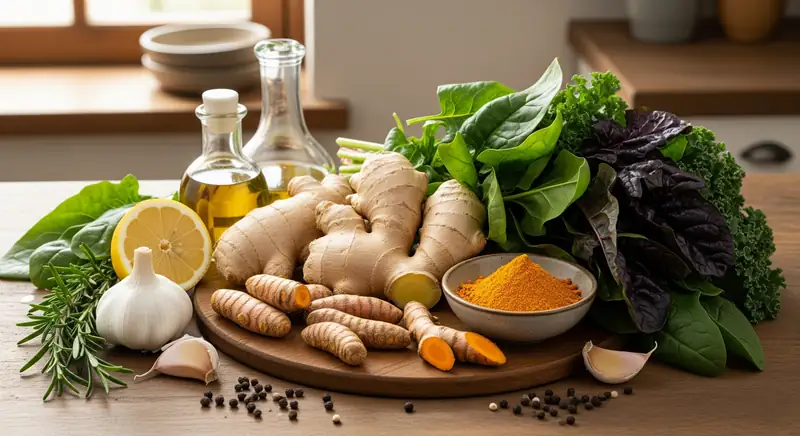
Have you ever felt tired even after a good night’s sleep, or woken up with achy joints? Maybe you’ve noticed your skin breaking out more often or had trouble focusing. These common feelings might be more than just everyday annoyances; they could be your body signaling that it’s dealing with too much inflammation.
Inflammation has become quite a “buzzword” in health circles recently, and for good reason. It’s your body’s natural way of protecting itself from harm, like a cut on your finger or an infection. Think of it as your internal superhero, rushing in to heal and protect. But sometimes, this superhero gets stuck in overdrive, and that’s when inflammation becomes a problem, turning into a silent enemy that can slowly damage your health.
The good news is that you have more power than you might realize! Many of the best inflammation remedies don’t come from a pharmacy, but from your own kitchen and daily habits. By making simple, natural changes to what you eat and how you live, you can help calm your body’s inflammatory response and boost your overall well-being.
This guide will walk you through understanding inflammation, identifying its signs, and discovering powerful natural remedies and lifestyle shifts you can make right in your own home. Let’s get started on your journey to feeling better, naturally!
Understanding Inflammation

So, what exactly is inflammation? At its core, inflammation is your body’s immune system kicking into action when it senses something foreign or damaging, like a germ, a cut, or even certain chemicals. When this happens, your blood vessels expand, allowing more healing white and red blood cells to rush to the affected area. This rapid response is called acute inflammation, and it’s a good thing! It’s what causes the redness, swelling, and pain you feel around an injury, signaling that your body is actively working to heal.
However, the trouble begins when this inflammation doesn’t go away. When it sticks around for more than a few weeks, it turns into chronic inflammation. Unlike its helpful acute cousin, chronic inflammation is like a low-grade, persistent fire that gradually damages your healthy cells, tissues, and organs. This long-term inflammation has been strongly linked to many serious health problems, including:
- Heart disease and high blood pressure
- Type 2 diabetes
- Arthritis and chronic joint pain
- Certain cancers
- Fatty liver disease
- Anxiety and depression
- Autoimmune conditions
- Dementia and brain fog
What Causes Chronic Inflammation?

While some factors are beyond our control, many common causes of chronic inflammation come from our daily lives. These include:
- Processed foods are full of trans fats, refined sugars, and additives
- An inactive lifestyle or lack of exercise
- Ongoing stress, which triggers hormones like cortisol
- Poor sleep that disrupts hormone balance and immune response
- Smoking and excessive alcohol consumption
- Exposure to allergens and environmental pollutants
As you can see, your daily choices have a big impact. The good news is that means you can make changes to help lower chronic inflammation!
Signs Your Body Needs an Anti-Inflammatory Reset
Your body is remarkably good at sending signals when it’s struggling with too much inflammation. Are any of these ringing a bell for you?
- Excessive fatigue: You wake up tired, even after what seems like enough rest.
- Joint pain & stiffness: This is one of the most common red flags of chronic inflammation.
- Digestive issues: Bloating, irritable bowel syndrome (IBS), or unpredictable bowel movements can all be signs.
- Brain fog: Difficulty concentrating, remembering things, or feeling mentally sluggish.
- Skin problems: Conditions like acne, eczema, or persistent redness on your skin can stem from internal inflammation.
If these symptoms sound familiar, it’s a clear indication that it’s time to explore some inflammation remedies and give your body the support it needs.
Natural Home Remedies for Inflammation
When it comes to fighting inflammation naturally, your plate, your spice rack, and even your drink choices can become powerful tools. Let’s explore how!
1. Anti-Inflammatory Foods to Include in Your Diet
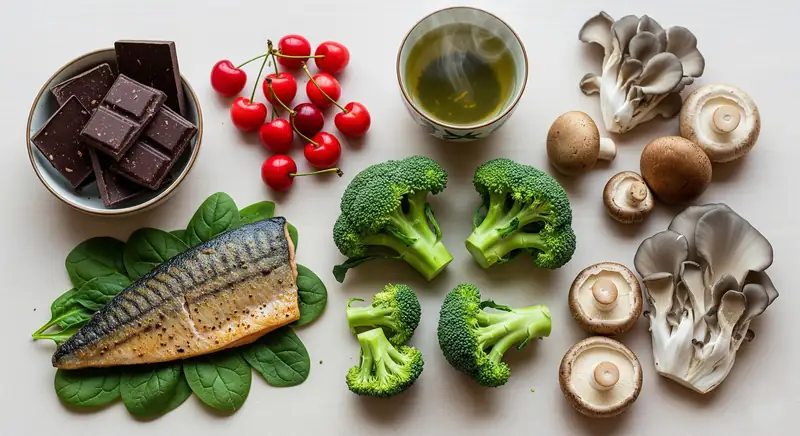
One of the most powerful inflammation remedies is found in the foods you eat every day. An anti-inflammatory diet focuses on whole, nutrient-dense foods packed with antioxidants and healthy fats. Antioxidants act like tiny defenders, reducing reactive molecules called free radicals that can cause inflammation. Healthy fats, especially omega-3s, help to suppress inflammatory proteins and chemicals in your body.
Here are some of the top anti-inflammatory foods you should aim to add to your daily meals:
- Dark Chocolate & Cocoa: Yes, a tasty treat can help! Dark chocolate (with 70% cocoa or more and low added sugar) contains flavonoids, powerful natural anti-inflammatory substances that fight oxidative stress. Try a small piece as a snack, or add unsweetened cocoa to your smoothie.
- Fatty Fish: Salmon, mackerel, sardines, tuna, herring, and anchovies are packed with omega-3 fatty acids. These healthy fats actively reduce inflammatory proteins and can lower the risk of heart disease and arthritis. Grill, roast, or pan-fry your fish with herbs and serve it with roasted vegetables.
- Cherries: These small but mighty fruits, especially tart cherries, are bursting with anthocyanins, antioxidants that give them their deep red color and provide strong anti-inflammatory effects. They’re great for soothing sore muscles and achy joints. Enjoy them fresh, in yogurt, or as tart cherry juice after exercise.
- Broccoli and other Colorful Veggies: Broccoli, along with bell peppers, Brussels sprouts, cabbage, cauliflower, kale, spinach, and collard greens, are rich in compounds like sulforaphane (in broccoli) that battle inflammation and protect your cells. Aim for a rainbow of colors on your plate each day, as different colors offer different benefits and antioxidants.
- Green Tea: More than just a calming drink, green tea contains EGCG (epigallocatechin gallate), a powerful antioxidant that helps quiet inflammatory reactions in your body. Drinking two cups daily can be a wonderful home remedy.
- Mushrooms: Varieties like shiitake, maitake, and portobello are unsung superfoods, full of polyphenols and beta-glucans that activate your immune response and fight inflammation. Add them to soups, stir-fries, or sauces.
- Grapes: Purple and red grapes contain resveratrol, a known antioxidant that can reduce inflammation and help ward off chronic diseases. Enjoy them raw, frozen, or in salads.
- Avocados: These creamy fruits are rich in monounsaturated fats, fiber, carotenoids, and vitamin E – all excellent for reducing inflammation, especially for brain and heart health. Mash them into guacamole, spread on toast, or blend into smoothies.
- Tomatoes: Full of lycopene, an anti-inflammatory antioxidant that supports cardiovascular health. Interestingly, cooked tomatoes have even higher lycopene content than raw ones. Roast them, add to salads, or use in sauces.
- Berries: Blueberries, strawberries, raspberries, and blackberries are packed with vitamins, fiber, and anthocyanins. These compounds lower oxidative stress and combat inflammation at a cellular level. Blend them into smoothies, mix into oatmeal, or enjoy fresh.
- Olive Oil: A staple of the Mediterranean diet, extra virgin olive oil is a healthy fat that helps reduce inflammation.
- Whole Grains: Brown rice, whole wheat products, oats, quinoa, barley, buckwheat, and farro are high in fiber, which is crucial for gut health and immunity, helping to reduce inflammation.
- Beans and Legumes: Another excellent source of fiber and plant-based protein, contributing to a healthy gut and lower inflammation.
- Nuts: Almonds and walnuts, in particular, have been linked to reduced markers of inflammation and improved cardiovascular health.
Sample Meal Ideas for an Anti-Inflammation Diet Plan:
- Breakfast: A 3-egg omelet with mushrooms and kale cooked in olive oil, served with a cup of cherries and green tea.
- Lunch: Grilled salmon on a bed of mixed greens with olive oil and vinegar, accompanied by a cup of raspberries topped with plain Greek yogurt and chopped pecans.
- Dinner: A delicious chicken curry with sweet potatoes, cauliflower, and broccoli.
- Snack: Bell pepper strips with homemade guacamole.
2. Herbs and Spices with Anti-Inflammatory Properties
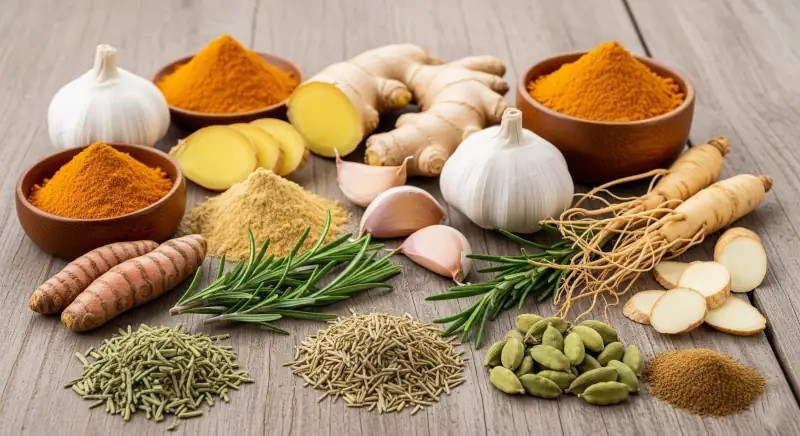
Beyond whole foods, many common herbs and spices are potent inflammation remedies, working at a deeper level to soothe your body.
- Turmeric: This bright yellow spice is incredibly popular in Indian cuisine and traditional medicine. Its main active compound, curcumin, is a powerful antioxidant and anti-inflammatory agent. Curcumin works by blocking molecules that activate inflammation in the body. Studies have shown it can reduce inflammatory markers and provide relief for conditions like arthritis.
- How to use: Add turmeric to curries, soups, smoothies, or scrambled eggs. For stronger effects, consider curcumin supplements, ideally with black pepper (piperine) to boost absorption by up to 2,000%. Turmeric itself only contains 2-6% curcumin.
- Ginger: Known for its peppery, sweet flavor, ginger has been used for thousands of years to treat various conditions, including arthritis. It contains over 100 active compounds, such as gingerol, which help reduce inflammation by limiting the production of inflammatory molecules and proteins. It can reduce joint pain and improve mobility.
- How to use: Enjoy fresh, dried, or powdered ginger in stir-fries, stews, salads, or steep it in hot water for a soothing tea.
- Garlic: A staple in many kitchens, garlic’s strong smell and taste come from its sulfur compounds like allicin, which have notable anti-inflammatory properties. It can reduce inflammatory markers and increase beneficial antioxidants in the body.
- How to use: Add fresh or roasted garlic to almost any savory dish. Concentrated garlic or aged garlic extract supplements are also available.
- Rosemary: This fragrant Mediterranean herb is rich in polyphenols, including rosmarinic acid and carnosic acid, which are believed to have anti-inflammatory effects. Studies suggest it can reduce pain and stiffness, and improve mobility, particularly in osteoarthritis.
- How to use: Rosemary is excellent as a seasoning for meats like chicken, lamb, or beef, and can be used in teas.
- Ginseng: Treasured in Asia for its medicinal properties, ginseng (both Asian and American varieties) contains active compounds called ginsenosides that reduce inflammatory markers by suppressing chemical messengers that promote inflammation.
- How to use: Its roots can be stewed into a tea or added to soups and stir-fries. Supplements in capsule, tablet, or powder form are also available.
- Cardamom: This complex, sweet-spicy spice, native to Southeast Asia, has been shown to reduce several inflammatory markers and significantly increase antioxidant status in the body.
- How to use: Cardamom is a wonderful addition to curries and stews, or can be taken as a supplement.
- Black Pepper: Often called the “king of spices,” black pepper and its main active compound, piperine, may help reduce inflammation. It has shown promise in reducing joint swelling and inflammatory markers in animal studies.
- How to use: Widely available, a dash of ground black pepper pairs well with almost any dish. Remember, it also helps your body absorb curcumin from turmeric much better.
- Cinnamon: This delicious spice has been linked to reduced inflammation and increased antioxidant levels.
- How to use: Use cinnamon sparingly as a seasoning. While beneficial, Cassia cinnamon (the most common type) contains coumarin, which can be harmful to the liver in large amounts. Limit your intake to no more than 1 teaspoon (about 2.5 grams) per day.
3. Topical Remedies for Skin Inflammation
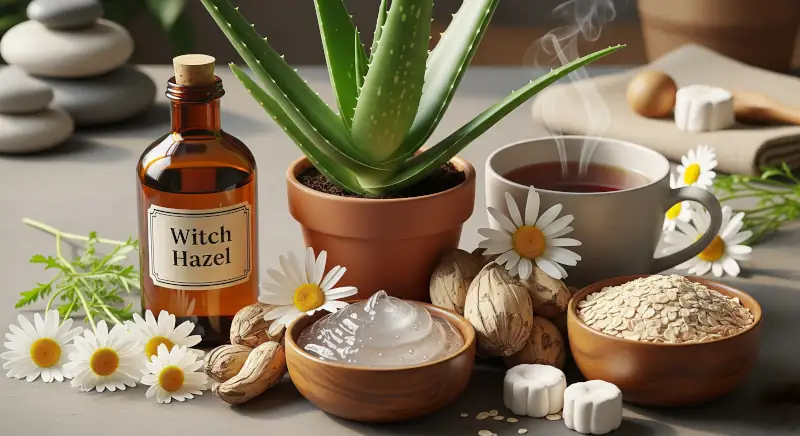
Sometimes inflammation shows up on our skin, causing redness, itching, or irritation. For these instances, a few natural inflammation remedies can be applied topically to offer soothing relief.
- Aloe Vera Gel: Known for its cooling and healing properties, aloe vera can be applied directly to inflamed skin.
- Witch Hazel: This natural astringent can help reduce redness and swelling when applied topically.
- Chamomile: Often found in creams or used as a compress, chamomile has soothing properties for irritated skin.
- Colloidal Oatmeal: Adding colloidal oatmeal to a bath can provide relief for widespread skin inflammation and itching.
- Marshmallow Root and Yarrow: Ointments containing these herbs have also been suggested to reduce skin inflammation.
Important Precautions for Topical Remedies:
- Always perform a patch test on a small, uninflamed area of skin before applying any new remedy to a larger or inflamed area.
- Be aware that many studies on topical remedies are laboratory or animal-based, and their effects may not be the same for humans.
- For chronic skin conditions, always consult a doctor before trying natural treatments, as underlying issues may require medical intervention.
4. Anti-Inflammatory Drinks and Tonics
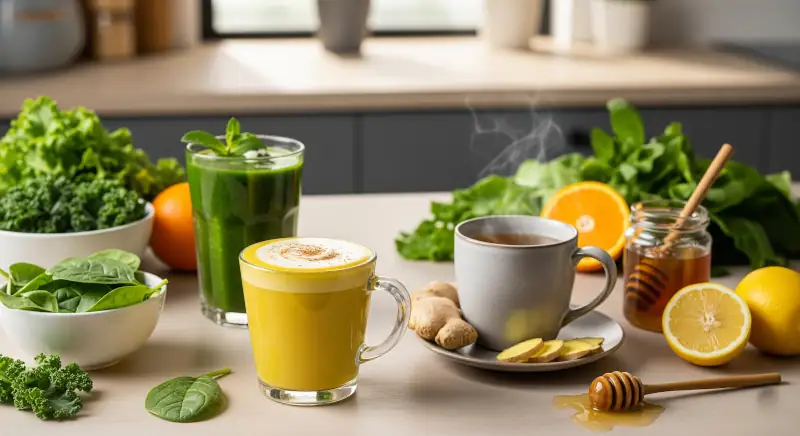
Beyond solid foods, what you drink can also play a significant role in your anti-inflammation diet plan. Staying well-hydrated is key, as water helps flush out toxins and keeps your cells working properly. Many drinks and tonics can pack a powerful punch of anti-inflammatory ingredients.
Here are some popular anti-inflammatory drinks and how to make them at home:
- Baking Soda and Water Tonic: A 2018 study suggested that drinking baking soda and water might help reduce inflammation by signaling the body to calm its autoimmune response.
- Try it: Combine 1/4 teaspoon of baking soda with 8 to 12 ounces of water.
- Important Caution: Use this tonic for short-term relief only (no longer than 2-4 weeks). Regular, long-term, or excessive intake can have harmful side effects like metabolic alkalosis or liver damage. Always discuss with a doctor, especially if you have existing health conditions.
- Parsley and Ginger Green Juice: This vibrant juice combines two powerful anti-inflammatory ingredients. Parsley contains carnosol, which targets inflammation, while ginger’s gingerol helps reduce inflammatory molecules.
- Try it: Add to a juicer: 1 large handful of parsley, 2 cups of spinach, 1 green apple, 1 lemon, 1 small cucumber, 2-3 celery stalks, and 1-2 inches of fresh ginger.
- Lemon and Turmeric Tonic: This warming tonic harnesses the power of curcumin from turmeric, along with the digestive aid of ginger and lemon.
- Try it: In a small saucepan, combine 1 tablespoon fresh grated turmeric, 1 tablespoon fresh grated ginger, the juice of 1 lemon, the rind of that lemon, and 3 cups filtered water. Bring to a simmer (do not boil) over medium heat, then turn off. Strain into mugs. You can add 1-2 teaspoons of maple syrup or raw honey and a pinch of cayenne pepper for an extra kick. Store strained leftovers in the fridge for up to 2-3 days.
- Bone Broth: This nourishing drink supports joint health with compounds like chondroitin sulfate, glucosamine, and collagen, along with anti-inflammatory amino acids like proline, glycine, and arginine. Studies show chicken bone broth may reduce symptoms of inflammatory bowel disease.
- Try it: In a large slow cooker, combine 2 pounds of high-quality chicken bones (and 2 chicken feet if desired), 1 onion, 2 carrots, 2 celery stalks, 2 tablespoons apple cider vinegar, and 1 gallon of water. You can also add 1 bunch of parsley, sea salt, peppercorns, and other herbs. Simmer for 24-48 hours, skimming fat occasionally. Strain and cool.
- Functional Food Smoothie: Boost your intake of antioxidants and anti-inflammatories by blending functional food powders (rich in bioflavonoids from herbs like ginger, rosemary, and turmeric) with other beneficial ingredients.
- Try it: In a blender, combine 2 scoops of your favorite functional food powder, 1 cup frozen organic berries, 1/2 banana, and 1 cup rice, hemp, or coconut milk. Optionally, add 1 teaspoon of arctic cod liver oil for omega-3s and vitamins A and D. Note: Be mindful of Vitamin A intake; while beneficial, excessive doses can be toxic.
- Matcha Anti-Inflammatory Tonic: Matcha, a powdered green tea, is exceptionally rich in EGCG, making it a potent anti-inflammatory and antioxidant drink. Because you consume the whole tea leaf, it delivers more beneficial compounds than regular green tea.
- Try it: In a small saucepan, combine 1 sprig fresh mint, 2 tablespoons sliced fresh ginger with skin, and 2 cups water. Bring to a boil and simmer for 5 minutes. Remove mint and ginger, then add 2 teaspoons matcha green tea powder. Vigorously whisk the matcha into the hot tonic. You can add honey to taste.
- Greens and Berries Smoothie: This hearty smoothie is loaded with whole fruits and vegetables known to fight inflammation, including dark leafy greens, berries, and beets, which provide antioxidants and gut-healthy fiber. Berries, with their polyphenols like anthocyanins and quercetin, are particularly good for reducing pain and inflammation related to arthritis.
- Try it: In a blender, combine 1 cup dark leafy greens (like kale, beet greens, or spinach), 1/2 peeled beet, 1/2 cup ice or water, 1/2 peeled orange, 1 cup frozen mixed berries, 1/2 cup frozen pineapple or mango, 1 teaspoon peeled fresh ginger, and 1 teaspoon coconut oil.
5. Lifestyle Changes to Reduce Inflammation

While diet plays a huge role in providing inflammation remedies, your daily habits are just as crucial. Combining an anti-inflammatory diet with healthy lifestyle choices can significantly enhance your results and lead to lasting well-being.
- Move Your Body Regularly: Even moderate exercise, like walking, yoga, or weight training, can help control inflammation and reduce inflammatory markers in your body. It also helps maintain a healthy weight and boosts your mental health. Studies suggest that even just 20 minutes of moderate exercise can reduce inflammation levels.
- Maintain a Healthy Weight: Excess body fat is a known driver of inflammation. Fat cells actually create and release chemicals that promote inflammation, and extra weight puts added stress on your joints. Losing even a few pounds can make a big difference; for every pound you lose, you reduce the load on your knee joint by 4 pounds.
- Ditch Processed Foods and Refined Sugars: These are major inflammation triggers.
- Added Sugar: The average American consumes far too much added sugar, which causes blood sugar spikes and fuels inflammation. Aim for less than 6% of your total daily calories from added sugars – that’s typically no more than 9 teaspoons (36 grams) for men and 6 teaspoons (24 grams) for women per day.
- Avoid sugary drinks like soda, sweetened teas, and fruit juices.
- Limit desserts, pastries, and candies.
- Be mindful of hidden sugars in unexpected foods like bread, salad dressings, and cereals.
- Processed Fats: Limit saturated fats (found in red meat, butter, high-fat dairy, and coconut oil) and avoid trans fats (in deep-fried foods and anything with “partially hydrogenated oils”). Also, limit omega-6-rich oils (like soybean and corn oil) often found in ultra-processed foods.
- Refined Carbohydrates: White bread, white pasta, cookies, and cakes offer little nutrition and can increase inflammatory markers. Choose high-fiber whole grains instead.
- Prioritize Stress Management: Chronic stress causes your body to release cortisol, which, over time, can increase inflammation. Finding ways to relax and manage stress is a vital inflammation remedy.
- Try techniques like deep breathing, meditation, yoga, spending time in nature, or engaging in creative hobbies. Talking with a friend or a therapist can also be very beneficial.
- Get Quality Sleep: Lack of sleep disrupts your hormones and immune system, which can activate and fuel inflammation. Aim for 7-9 hours of quality sleep each night.
- Improve your sleep hygiene by setting a regular sleep schedule, creating a dark, quiet, and cool sleep environment, avoiding screens and blue light before bed, and addressing any underlying sleep conditions.
- Don’t Smoke & Limit Alcohol Intake: Both smoking and excessive alcohol consumption are known to cause and fuel inflammation, undermining all your other efforts to heal your body. Alcohol, in particular, can disrupt your gut microbiome, which is closely linked to inflammation. If you choose to drink alcohol, keep it to one drink or less per day.
When to See a Doctor

While these natural home inflammation remedies and lifestyle changes can profoundly impact your health, it’s crucial to understand their role. They are powerful tools for support and prevention, but they are not a substitute for professional medical advice.
Inflammation can be a sign of serious underlying health conditions that require medical diagnosis and treatment. If you experience any of the following, or if your inflammation is severe or persistent, it’s important to consult a healthcare professional:
- Severe or unexplained pain
- Swelling, redness, or heat that doesn’t improve or worsens
- Fever or chills
- Inflammation that significantly impacts your daily life
- Any new or worsening symptoms that concern you
Always discuss any new home remedies, dietary changes, or supplements with your doctor, especially if you have existing health conditions, are taking medications, or if you suspect you have chronic inflammation. Some herbal products and supplements can interact with medications or existing conditions, and their quality can vary since they are not regulated by the FDA. Your doctor can help you create a safe and effective plan that integrates natural approaches with any necessary medical care.
Conclusion
Taking charge of your health by embracing natural inflammation remedies at home is one of the most empowering steps you can take for your long-term well-being. We’ve explored how understanding the difference between helpful acute inflammation and harmful chronic inflammation is the first step towards relief. By recognizing the subtle signs your body sends – from fatigue and joint aches to digestive issues and skin problems – you can identify when it’s time for an “anti-inflammatory reset”.
The journey to reduce inflammation naturally doesn’t require drastic measures; it involves conscious choices you can make every day. By incorporating a vibrant array of anti-inflammatory foods like fatty fish, colorful fruits and vegetables, and healthy fats, you’re fueling your body’s healing process. Spices like turmeric and ginger, with their potent compounds, offer internal soothing, while nourishing tonics and drinks keep you hydrated and fortified. Crucially, remember that consistent lifestyle changes – regular movement, stress relief, quality sleep, avoiding smoking, and limiting alcohol – are the pillars of a truly effective anti-inflammation diet plan.
The key to success is consistency. One healthy meal won’t erase years of inflammatory habits, just as one unhealthy meal won’t undo all your progress. It’s the accumulation of small, mindful choices over time that leads to significant and lasting improvements in how you feel.
Ready to gain more energy, prevent chronic disease, and simply feel better in your own skin? Start incorporating these powerful inflammation remedies into your daily life today! For personalized guidance, consider consulting an expert nutritionist who can tailor a plan specifically for you. Your body will thank you!
9 Sources:
Noble Home Remedies relies on peer-reviewed studies, academic research institutions, and medical associations for accuracy and reliability while avoiding tertiary references. Our editorial policy provides more information about how we ensure our content is accurate and up-to-date.
- 10 Best Anti-Inflammatory Foods to Add to Your Diet
https://www.medanta.org/patient-education-blog/10-best-anti-inflammatory-foods-to-reduce-inflammation-naturally - 9 Herbs and Spices That Fight Inflammation
https://www.healthline.com/nutrition/anti-inflammatory-herbs - 9 healthy eating tips that can help reduce inflammation
https://health.ucdavis.edu/blog/good-food/9-healthy-eating-tips-that-can-help-reduce-inflammation/2023/11 - What is an Anti-Inflammatory Diet and How to Follow it
https://www.healthline.com/nutrition/anti-inflammatory-diet-101 - Drinks That Fight Inflammation and Pain
https://www.healthline.com/health/inflammation-fighting-tonics - Foods for Fighting Inflammation, Arthritis, and Joint Pain
https://www.brownhealth.org/be-well/foods-fighting-inflammation-arthritis-and-joint-pain - Foods that fight inflammation
https://www.health.harvard.edu/staying-healthy/foods-that-fight-inflammation - Which herbs and herbal remedies help reduce inflammation?
https://www.medicalnewstoday.com/articles/324368 - What are some natural remedies for inflammation?
https://www.medicalnewstoday.com/articles/natural-remedies-for-inflammation
Trust in your purchase:
Every product featured on our site has been carefully researched and selected based on quality, customer ratings, and positive reviews to ensure you receive excellent value for your money.
Please note:
This post contains affiliate links. If you make a purchase through these links, we may earn a small commission at no additional cost to you. This helps support our site and allows us to continue bringing you valuable content. Thank you!
Thank you for your precious time spent with NobleHomeRemedies.
You may also like:
Garlic for Boils
Garlic for Boils: Is Garlic Good for Boils-Topically or Oral Boils are painful, pus-filled lumps…
Fall Allergies: Symptoms, Triggers, and Reliable Remedies
Fall Allergies: Symptoms and Triggers: , Reliable Remedies Spring is over, summer is over now…
Home Remedies for Bunions
Home Remedies for Bunions A bunion is a bone growth on the side and bottom…
Detox Water Fat Burning
Detox Water Fat Burning: Top 5 Natural Recipes and Benefits for a Healthier You Are…
Get Rid of Cystic Acne
Get Rid of Cystic Acne:12 Best Home Remedies Acne is a widespread skin condition among…
Yeast Infection Remedies
Yeast Infection Remedies: Your Ultimate Guide to Fast Relief Experiencing a vaginal yeast infection can…

